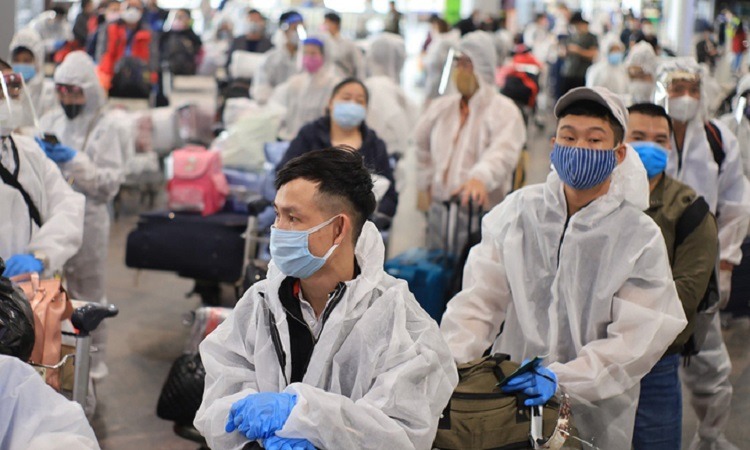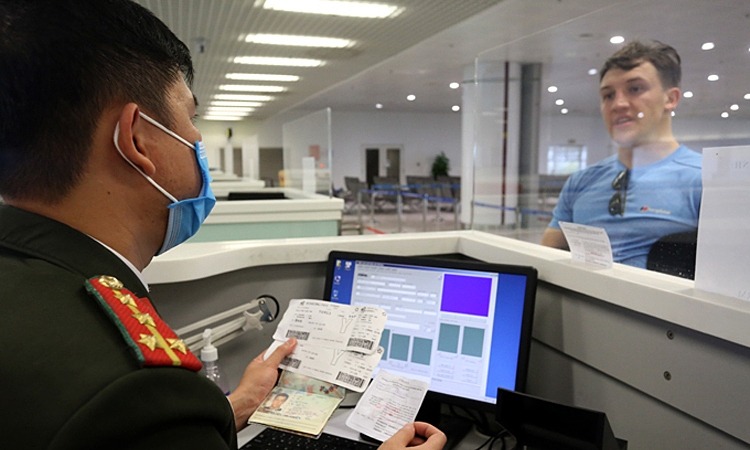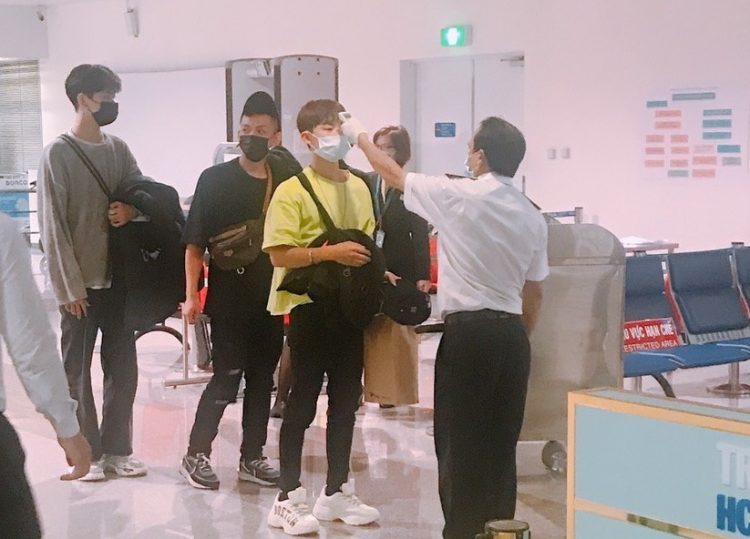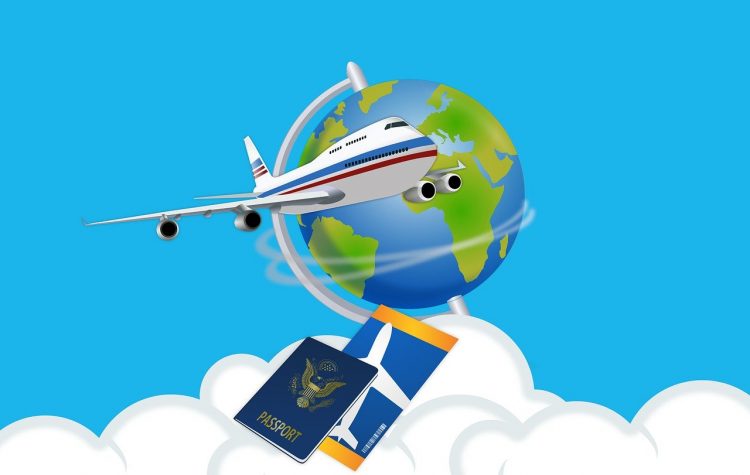Vietnam Travel Advisory COVID-19

When can I travel back to Vietnam? Thank god that you are still safe and interested in traveling to our country. A briefing of COVID 19 Vietnam travel advisory will ease your concerns regarding the coronavirus situation in Vietnam, Vietnam travel restrictions, new visa policies and some FAQs.
Although the country has begun to reopen, there are Vietnam travel restrictions and bans that you should be aware of. Here are updated announcements from the Vietnamese government and what you can and should do to quench your thirst for traveling to Vietnam.
Contents
COVID-19 Pandemic in Vietnam
As of July 3, Vietnam had confirmed 355 cases of COVID-19, 340 recoveries and no deaths. Hanoi, as of June, is the most affected city with 121 confirmed cases. It has been more than two months without any cases of community transmission in Vietnam. (1) The most confirmed cases were all sent immediately to centralized quarantine. For further details please see the Vietnamese Ministry of Health website here.
Global media has praised Vietnam’s efforts to control the pandemic despite ìnferior economic and technological capacities. According to the National Public Radio (NPR) of the US, Vietnam’s success stems from the early implementation of a drastic policy by the government social distancing and the country’s experience against the previous pandemics such as SARS and H1N1. (2) Russian RIA Novosti says Vietnam’s response to the COVID-19 pandemic has been amazing. (3)
» See more on How has Vietnam, a developing nation in South-East Asia, done so well to combat coronavirus?
Vietnam travel restrictions

Only Vietnamese nationals, foreigners on diplomatic or official business, and highly skilled workers allowed to enter the country at this time. Anyone entering Vietnam must undergo medical checks and 14-day quarantine upon arrival. This quarantine requirement has in some cases been prolonged to more than 14 days when deemed necessary by the authorities.
The Government of Vietnam has not lifted the suspension of entry for foreigners, including people with a Vietnamese visa exemption certificate. Vietnamese authorities have not announced a potential date to allow foreigners to enter Vietnam again. (4)
Visa policies for travelers to Vietnam

According to The 79/NQ-CP resolution in line with the Law on Foreigners’ Entry Into, Exit From, Transit Through and Residence in Vietnam, citizens from 80 countries will be allowed to get an e-visa from July 1. (5)
The 80 countries include the UK, China, Brazil, Canada, Russia, the U.S., Austria, Poland, Belgium, Portugal, the UAE, Germany, India, South Korea, Italy, Finland, France, Japan, Spain, Sweden, Switzerland, the Netherlands, Norway, and more.
Visitors with e-visas can enter Vietnam at eight international airports, or arrive via land at 16 international border gates and via sea at 13 ports across the country.
For details on the new e-visa policy, please click here. Or you can call Vietnam’s Immigration Department at +8424 3938 7320.
Vietnam’s e-visa is one of several visa types offered by the Vietnam Immigration Department to foreigners entering the country. The e-visa is valid for 30 days, and single entry only. The e-Visa costs 25 USD for card payments. It requires three full working days to process.
Foreigners that entered the country on visa waiver programs, e-visas, or tourist visas since March 1 will be subjected to automatic visa extensions until June 30, according to Vietnam’s Immigration Department.
» See more on The Ultimate Guide to Vietnam Travel Visa
Travel safety in Vietnam

Domestic airline and railway transportation have been allowed to ease restrictions. More daily flights and trains within Vietnam are now available. Although confirmed cases remain low within the country, authorities still take preventative measures to contain the virus.
Anyone in Vietnam, foreigners and locals, must wear face masks in public places like supermarkets, airports, bus terminals and public transport. Those who do not have a mask may be denied entry. Observing strict hygiene standards remain in place. (6)
To reduce their risk to the coronavirus, travelers are advised to take basic precautions by the World Health Organization as follows: (7)
- Perform hand hygiene frequently, particularly after contact with respiratory secretions. Hand hygiene includes either cleaning hands with soap and water or with an alcohol-based hand rub. Alcohol-based hand rubs are preferred if hands are not visibly soiled; wash hands with soap and water when they are visibly soiled;
- Cover your nose and mouth with a flexed elbow or paper tissue when coughing or sneezing and disposing immediately of the tissue and performing hand hygiene;
- Refrain from touching mouth and nose;
- A medical mask is not required if exhibiting no symptoms, as there is no evidence that wearing a mask – of any type – protects non-sick persons. However, in some cultures, masks may be commonly worn. If masks are to be worn, it is critical to follow best practices on how to wear, remove and dispose of them and on hand hygiene after removal.
FAQs on Vietnam travel advisory

Here are some frequently asked questions that may help prepare for your next travel plans to Vietnam.
♣ Can foreign tourists enter Vietnam from July 1?
No. Although the Vietnamese government has issued a resolution to permit citizens from 80 countries to get an e-visa from July 1. Vietnam still bars entry to foreigners, including those who already hold visas or visa exemptions until further updates.
♣ What to do if I get quarantined as a foreigner?
Foreigners on diplomatic, official business and special purposes entering Vietnam are subjected to mandatory, centralized quarantine for 14 days. Quarantine sites in Vietnam may be more basic and English proficiency lower.
♣ Do I have to pay for COVID-19 treatment?
You will not have to pay for testing for COVID-19 or your time in quarantine, however, if you have tested positive and required treatment you will have to cover treatment costs.
♣ Is Vietnam safe for travel? When can I travel to Vietnam again?
Vietnam has taken a lot of measures to prevent the coronavirus from spreading in the country with few infected cases and no deaths. Non-essential businesses, except for discotheques and karaoke lounges, and many tourist attractions have reopened across the country. Due to the complicated situation of COVID-19, traveling to Vietnam is still out of the question.
For your health safety, you should temporarily limit your travel if it’s not necessary. Consider traveling domestically depending on your country’s travel advisory. If you are interested in traveling to Vietnam, plan now and travel later. Stay safe!
© Maika Tours
Written by Trinh Tran
Sources:
(3) http://news.chinhphu.vn/Home/Russian-press-hails-VNs-amazing-fight-against-Covid19/20205/39951.vgp
(4) https://vn.usembassy.gov/u-s-citizen-services/covid-19-information/